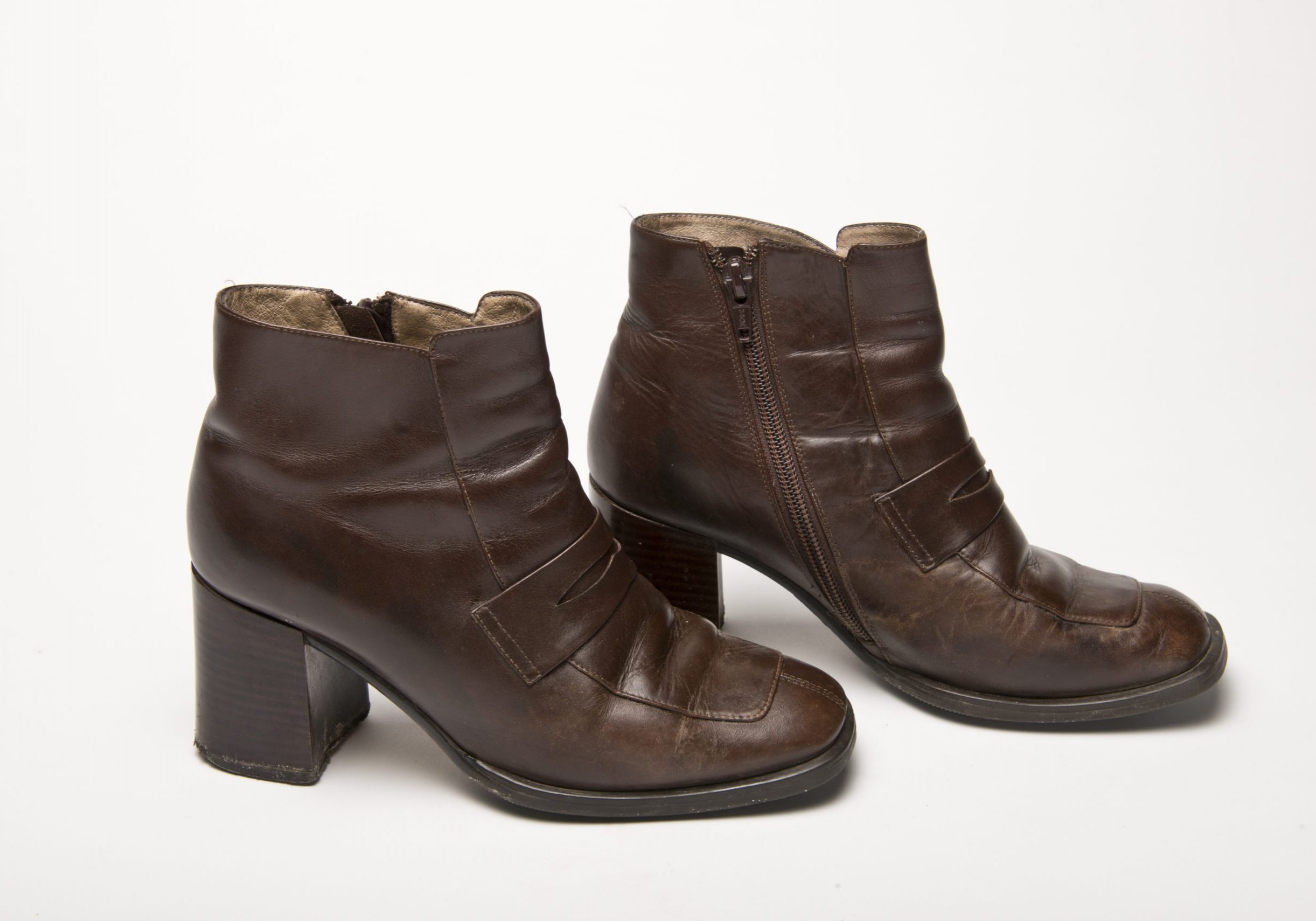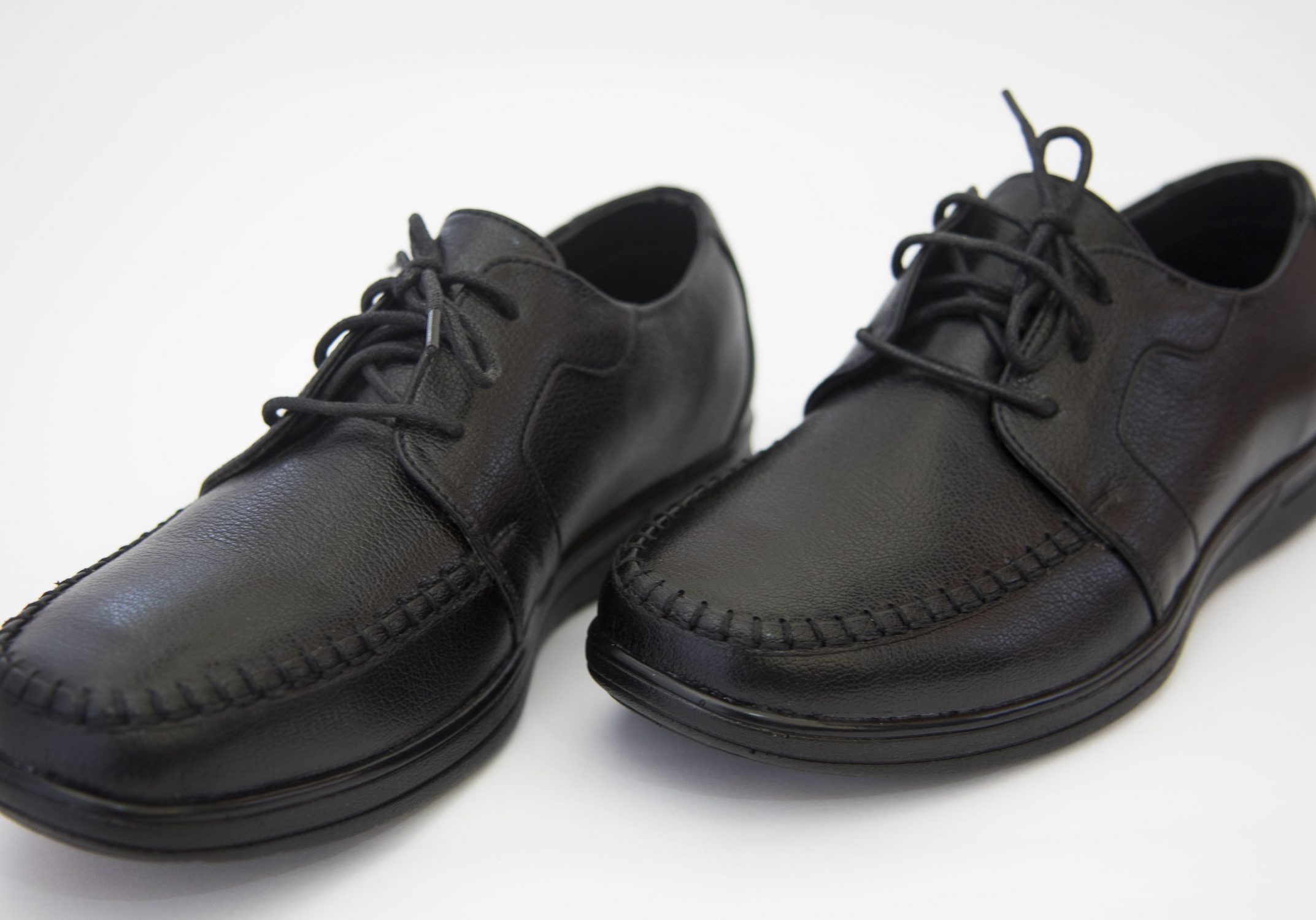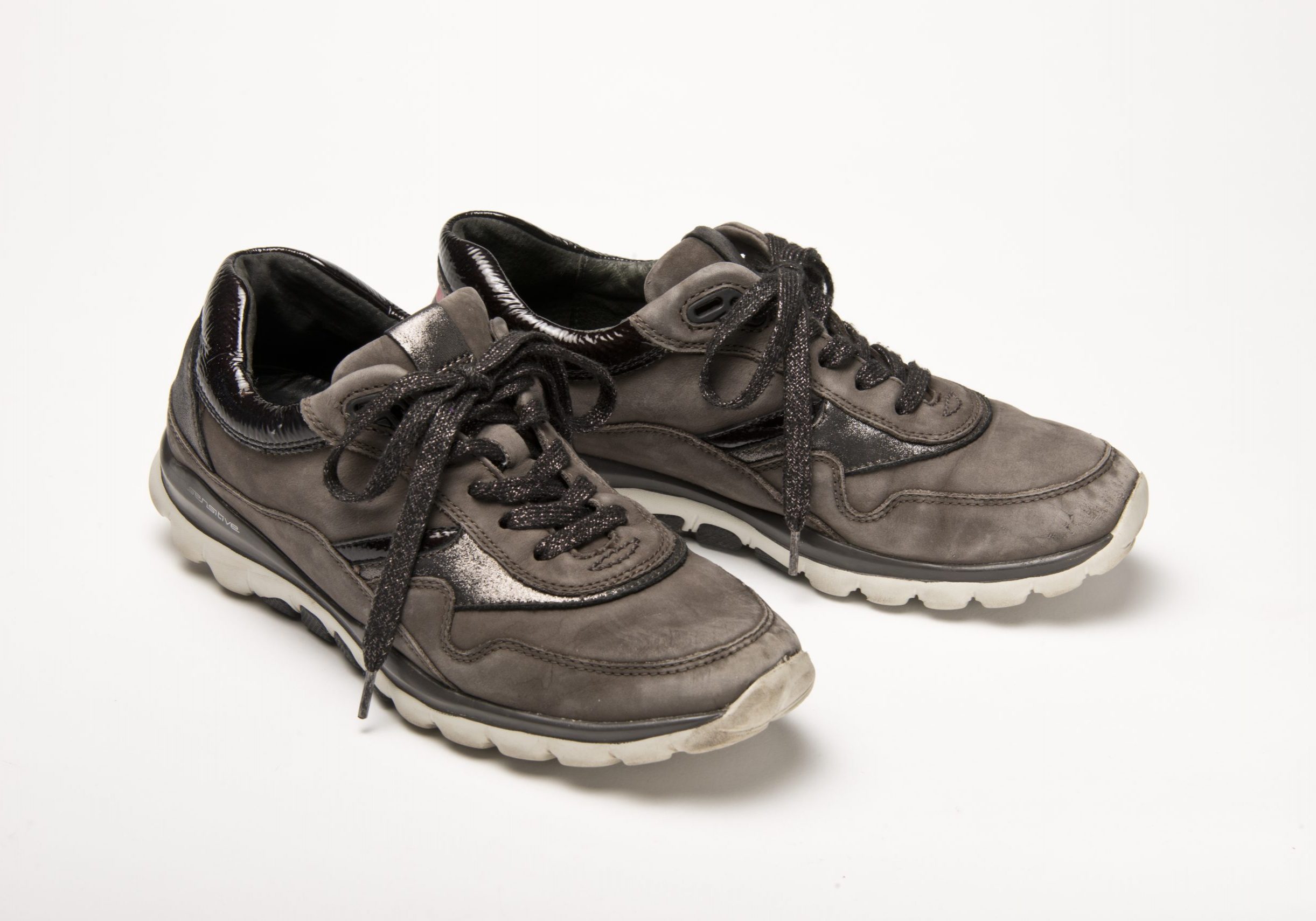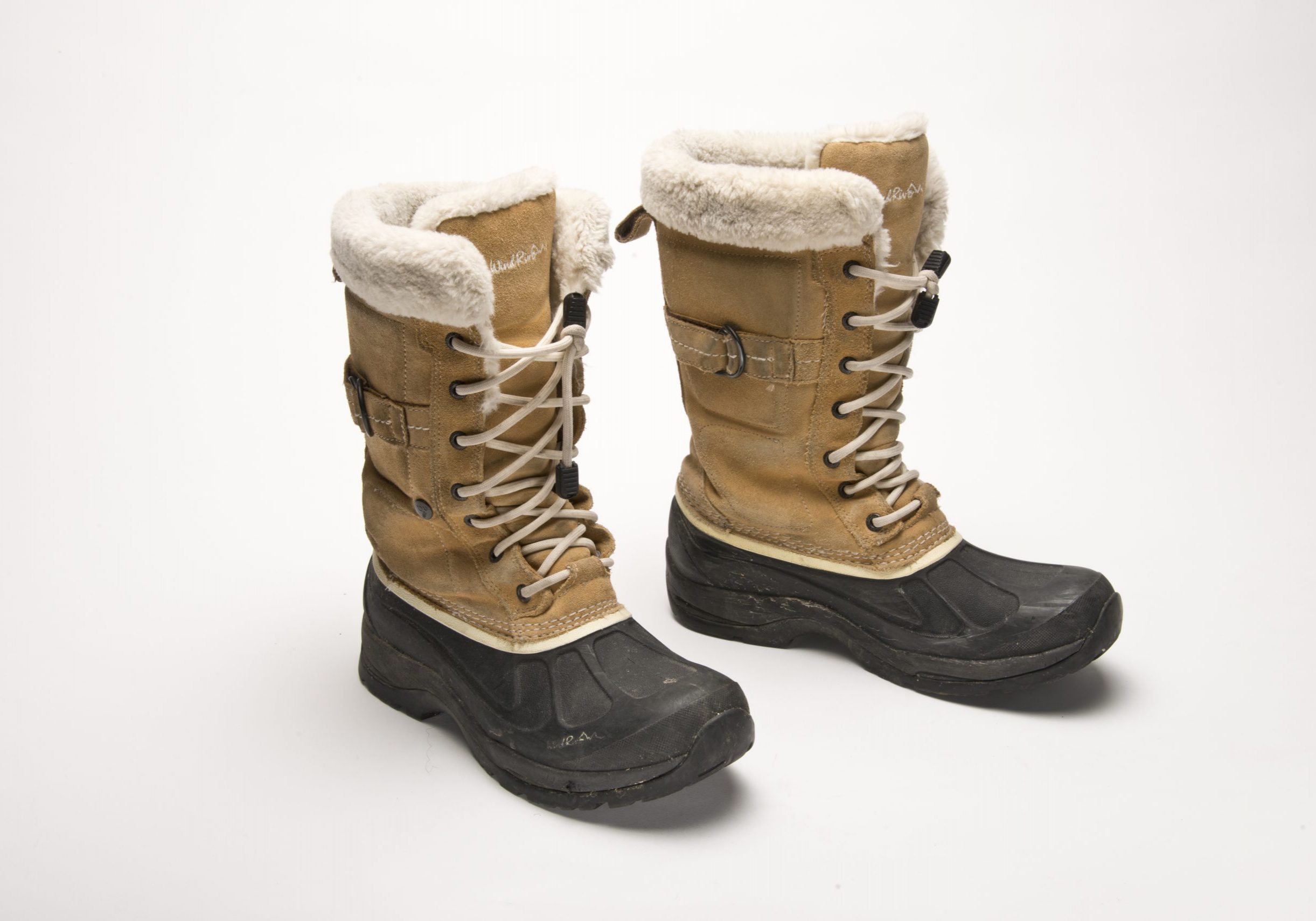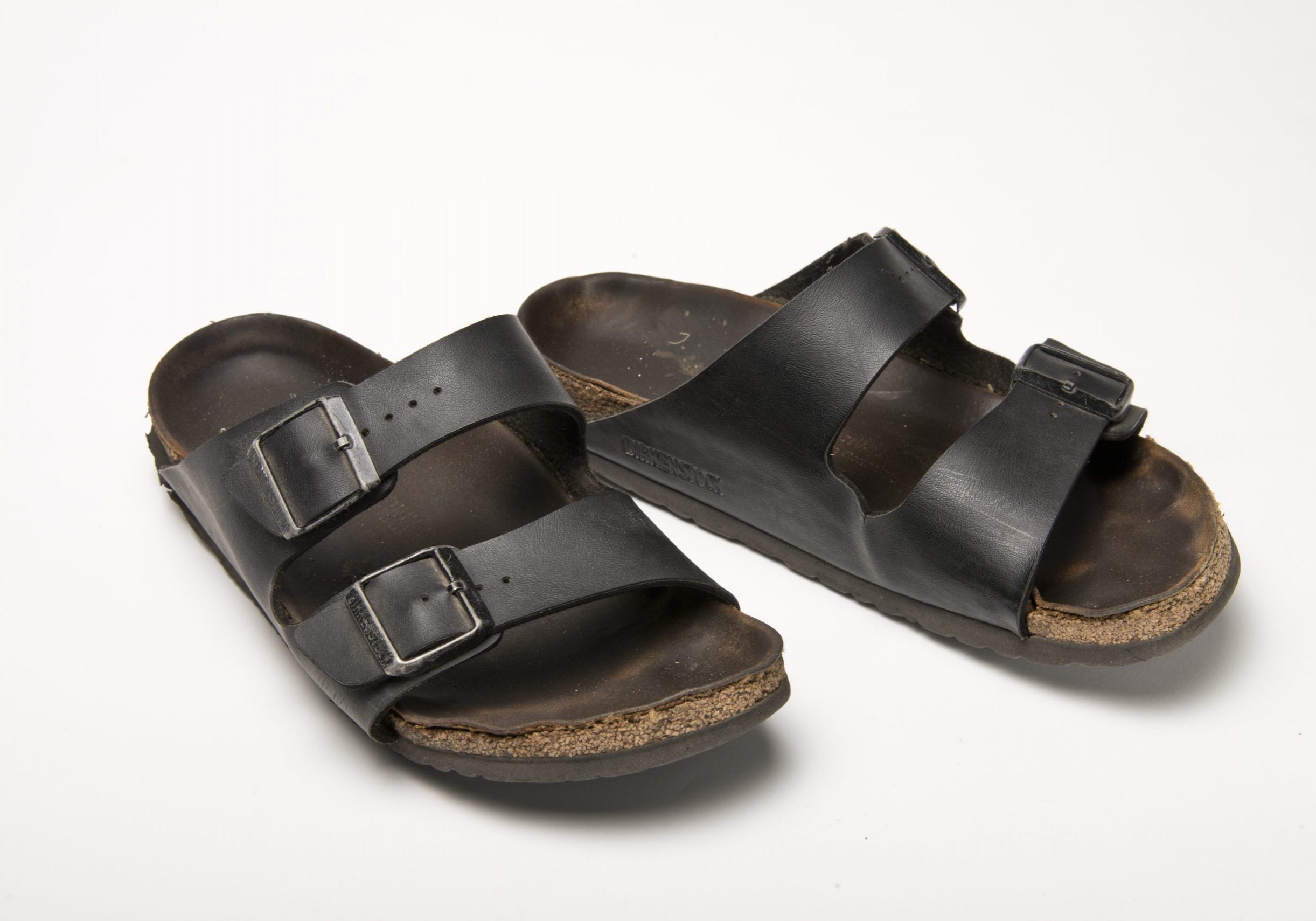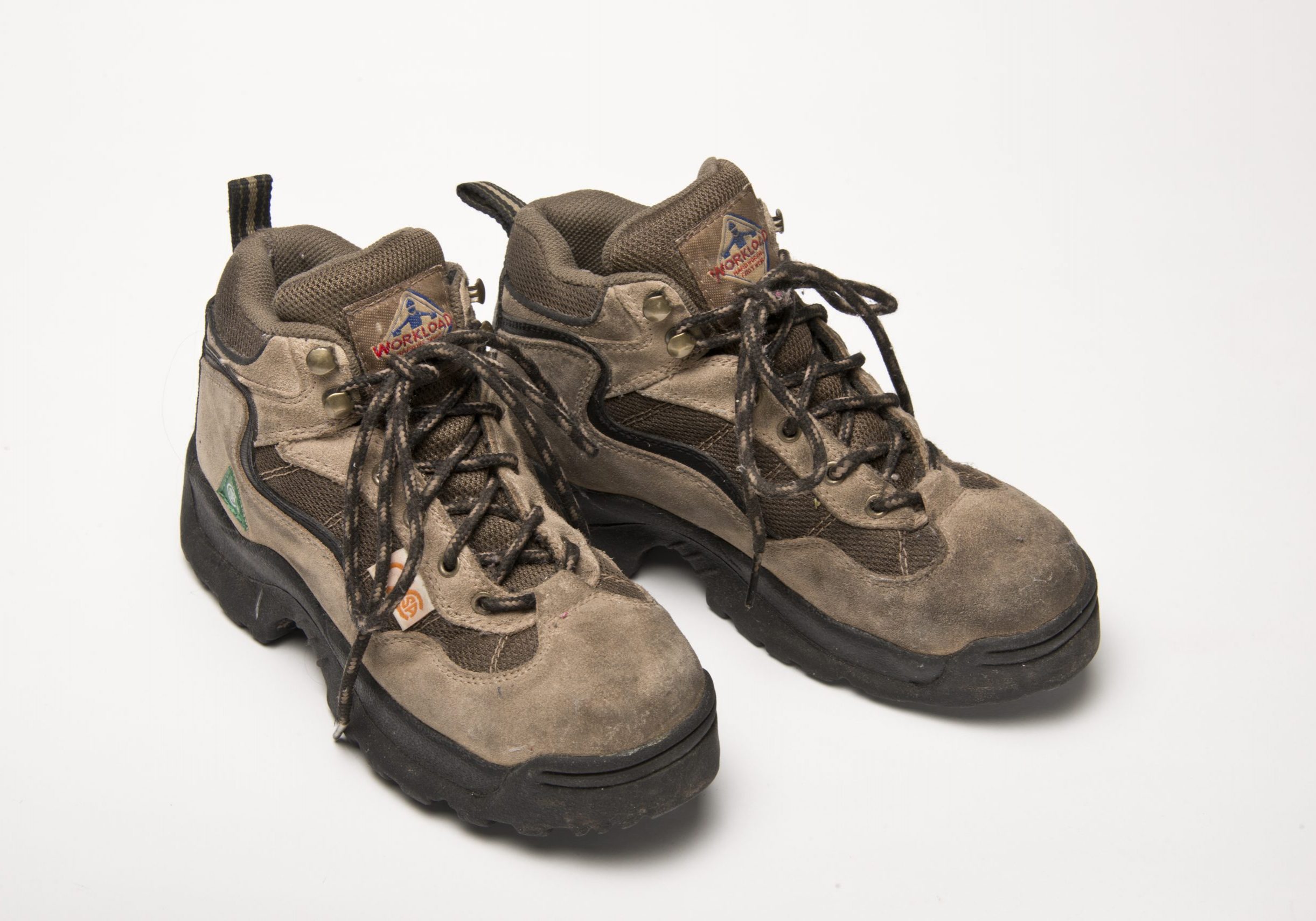My Brown Shoes
Fatima Dzhigkaeva
Summary:
Fatima Dzhigkaeva buys brown leather shoes in Sarajevo, a city that has known bloodshed. So has her home city in South Ossetia. She wears the brown shoes as she returns to find what is left of the family home. The brown shoes protect her feet from the rubble. But in Canada, she doesn’t wear them – she wants to erase their legacy of war and destruction.
Story:
It was my last day in Sarajevo. The training was intense, with very little time to see the city. A few of us went to see the downtown area. There were small silverware workshops here and there, selling delicately patterned jewelry. I went into a shop selling handmade leather bags and shoes. That’s when I saw them—slippers in a rich brown colour, a modest, classic design, made of good leather. I didn’t have to think twice: I counted out the local currency I had left, and the shoes were mine. I put them on right away to take a final tour in Sarajevo.
The city was beautiful: old structures built on the hills one above the other, the roof of one house being the front yard of the next. Most were built in the middle of the 20th century. The city was the cradle of World War One, and there was a shy reminder of that written on a piece of rock at the bridge. As well, here and there, you could see signs of the brutal armed conflict that divided up Yugoslavia. The former library was like the Coliseum in Rome—right in the heart of the city, an astonishingly beautiful skeleton.
It was not only the landscape and architecture that I admired but the people too. They are tall, gorgeously built, with blue or green eyes and fair hair. I wondered how they survived the long years of the conflict and if they lost their family members and houses.
I returned to the south of Russia, where my home was at that time. Whenever I wore those shoes, I recalled the beauty and sadness of Sarajevo. A year passed, and in August of 2008, the conflict in my homeland was evolving, but nobody expected such a burst of violence and brutality. Many people, including my family and friends, found refuge in the south of Russia. At midnight on August 8th, Georgia attacked South Ossetia. In the beginning, we could get in touch with family and friends hiding in basements from tanks and bombs. But then they stopped answering their phones because the Georgian army could identify the signals and target the buildings where they originated.
After the horror ended, I decided to go to South Ossetia to see if there was anything left of my parents’ house. It was summer, but I wore the brown shoes. I had a feeling they would protect my feet in the aftermath of war. They had to, considering their origin. After I arrived in Tskhinval, I walked a couple of kilometres. Not a single building stood completely intact. The green trees were trying to hide the remains of the structures but did not have enough leaves. What I will never forget from that walk is the sound of crashed glass under my brown shoes. On one of the isolated streets, I saw a truck with two men offloading what I thought was a red sofa. When I came closer, I saw that it was a coffin covered by red fabric.
To my surprise, our house was relatively intact: there was a huge hole in the balcony wall and not a single whole pane in any of the windows. But that was nothing compared to the lives that were lost.
I came to Canada in 2010, and the shoes came with me. Although I love my handmade brown leather shoes, I have avoided wearing them. I promised myself that I would start wearing them more when I felt at home. I would like to erase the memory of war and destruction from the shoes I love.
I believe that moment has come. I got the job of my dreams, and I started wearing my brown shoes more often to give them new memories.
FATIMA DZHIGKAEVA was born in South Ossetia, formerly part of the Soviet Union. She studied linguistics and economics in Russia and South Ossetia and worked for the United Nations until she left. Fatima came to Canada in 2010 with her son. She studied Public Policy at York University and is now working for Immigration, Refugees and Citizenship Canada.
Read Other Stories from this Author
Nubuck Winter Boots
Fatima Dzhigkaeva has little time to prepare to emigrate from South Ossetia. She leaves behind her soft nubuck boots...
